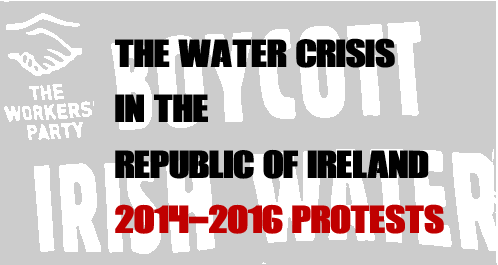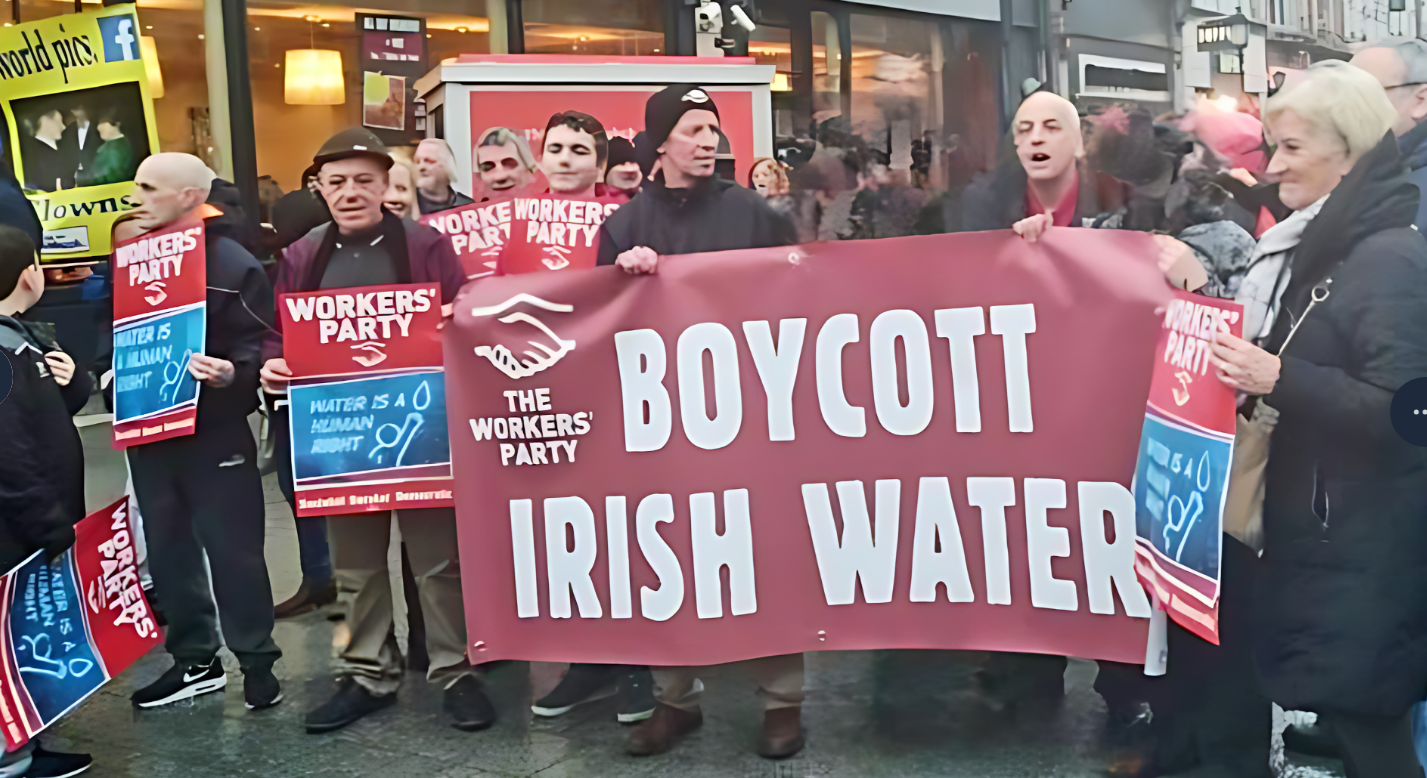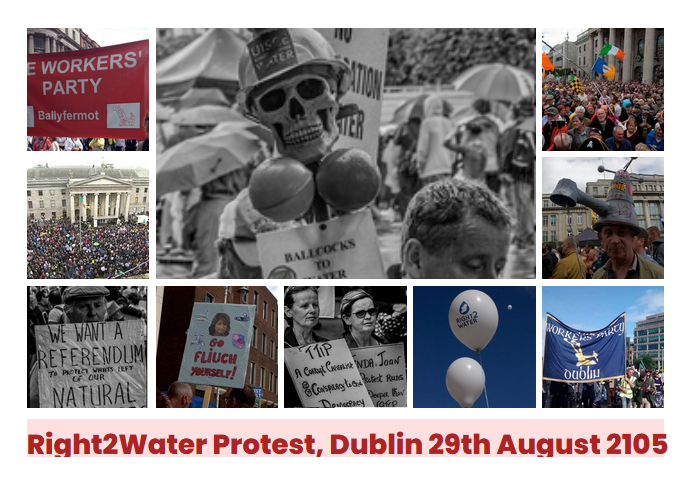
In January 2014 there was public shock and anger when it emerged that €86 million of Irish Water’s €180 million set up costs was for consultants, contractors and legal advice.In Cork city in spring 2014 the first installations of water meters were blocked by activists. Following this example, local activists set up ‘Say No’ groups to water charges all over Ireland.
In August 2014, the Right2Water campaign was launched by the Unite and Mandate trade unions, arguing that water charges were unconstitutional and a breach of human rights.
One of the founders, Brendan Ogle of Unite said that the organisation was "interested in unifying opposition to the incoming domestic water charges". The first national demonstration against water charges took place in October 2014, when over 100,000 people came on to the streets of Dublin. On 1 November 2014, Right2Water then organized over a 100 local protests across Ireland. Further demonstrations took place throughout 2015 and early 2016.
These demonstrations forced major concessions from the government. On 21 October 2014, Irish Water announced non-compliance rates of 66 per cent before the initial deadline ten days later, and the utility company was forced to extend its registration deadline by one month. Right2Water Ireland organised a fourth national demonstration in Dublin on 21 March 2015, which was attended by approximately 88,000 people and marches continued throughout 2015.
On 8 September 2015 the European Parliament report authored by left-nationalist MEP Lynn Boylan calling for the European Commission "to recognise that affordable access to water is a basic human right" was endorsed by a majority of MEPs.
In October 2015 Right2Water held a national conference which was attended by representatives of the Anti-Austerity Alliance (Trotskyist), Sinn Féin, People before Profit (Trotskyist), the Workers Party, Social Democrats, Communist Party, and independent representatives.

On 23rd January 2016, thousands of people flocked to 30 demonstrations across the country. On 20th February, a week before a general election, a further demonstration took place in Dublin. It was attended by 80,000 people including election candidates.

General elections in 2016 ended without a clear government majority and the new minority government decided to suspend charges on1 July 2016 and set up a parliamentary commission to debate the future of water services in Ireland.
Since November 2017, those who had paid water charges have been reimbursed. Water charges were off the table. As of November 2022, the Government stated its intention to hold referendums on housing and water. The Taoiseach (Prime Minister) stated that "there is no doubt that water will remain in public ownership".
